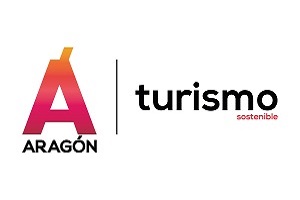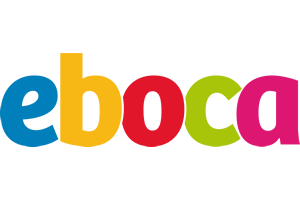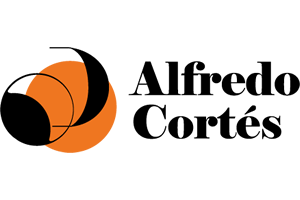The 2030 Agenda was approved by the UN in 2015 and until 2018 Aragon did not have its Sustainable Development strategy. Why did it take so long to see that it was essential?
Because when President Javier Lambán came to the government he had to strengthen a series of policies that were weakened, we were ending the international crisis phase and it was first the urgent and then the important.
And the 2030 Agenda was only important?
There is nothing more important than bringing together the 17 SDGs and achieving economic, social and environmental sustainability.
Now the 2030 Agenda is a roadmap that has been in place for 6 years in 193 countries and there are still people who do not know what the SDGs are… Is it complex, is there a lack of pedagogy…? How are you working on it?
There is a lack of communication. It is very difficult to reach 100% of the general public who know something, but we are climbing above 25% of the general population who know about the SDGs. But there is a lack and everything that is done is welcome, so thank you very much for the interview and like the rest of the media that are very committed to this dissemination; companies, banks, universities, municipalities… the first commitment you make when you voluntarily commit to the 2030 Agenda is to make it known.
How does the Government of Aragon publicize the SDGs?
The most important thing is to include the SDG compass in all policies, budgets and everything it does. All departments, strategies and calls for proposals contribute and show that they contribute to the SDGs. It is up to me to see the overall contribution and to match, to ensure that policies are coordinated to achieve it. In the budgets and in the government plan of the community, they are for the SDGs, also the European Regeneration Funds…
When you say that the budgets are based on SDGs, does that mean that the government’s spending on SDGs has been identified?
Yes, it was one of the first things we did this legislature: to make it compulsory to record each expenditure with the SDG to which it contributed as a priority.
How much is estimated?
There is an annex that indicates it. The 2021 budget was 2,600 million for the SDGs, which is not the entire budget of the Government of Aragon because there were some items such as the purchase of medicines or health personnel that could not be recorded in this way.

What actions is the Government of Aragon working on to meet the challenges set by the 2030 Agenda?
There are many. Supplementing the minimum living income provided by the Government of Spain with regional allocations goes towards SDG 1; introducing the SDGs in all educational curricula so that students study recycling, gender equality, sustainable mobility and learn with the SDGs is also SDG 5; all campaigns to combat gender violence and equality is SDG 6; investments to preserve biodiversity in natural parks such as Ordesa towards SDG 13; we have record figures in public safety based on prevention and work with 112 goes towards SDG 16… Everything we do goes towards meeting a goal of the 2013 Agenda.
In the end it is putting a label on something that already existed before: values such as the environment, the fight against poverty, etc., which as a good government should contribute to social welfare.
In fact, everything we were doing contributed to the SDGs, to the social, to the environmental and, increasingly, to the digital. It is true that the 2030 Agenda has a part to play in covering what is being done, providing coherence and a shared framework. This helps us to communicate better, to evaluate ourselves better among administrations or to help government plans and strategic decisions to go in the right direction.
Evaluation is a key step. We often talk about what the objectives are, but not often about what is actually achieved. I understand that a tool has been put in place to monitor the achievement of governance objectives.
We have deployed through the Transparency Portal the VisualGob tool where you can see all departmental policies, actions and budget and how they contribute to each of the 17 SDGs. You can see the fulfillment of each action and I think we are going at a good pace. In addition, on the aragon.es portal you can reach a set of regional indicators developed by the IAEST, which has developed together with other Autonomous Communities the shared scorecard to assess how progress is being made towards the SDGs. Each institution has its own indicators and that was an unmanageable chaos, so we chose to create an automated and replicable scorecard, We have more than 100 indicators to analyze the number of people with internet access, in shantytowns, water quality media, etc.. You can see how much progress has been made in the last 10 years and with a view to 2030.
What reality do these indicators show?
There are good trends in general, although each indicator is different. For example, in the fight against poverty and inequality we were on the right track, there is less and less, but with the arrival of the pandemic, inequality has increased somewhat and we have to keep it as the top priority. In which areas are we performing less well in Europe? In the decarbonization of our economy, in recycling and boosting the circular economy, and in caring for biodiversity. However, in quality of work, in gender equality we are doing very well.

And at the local level?
Teruel and Huesca are in four SDGs ranked among the 15 best cities in Spain and Zaragoza is in 12 of the 17 SDGs in those 15 cities. This shows that in Aragon we are better than most, but the SDGs and the 2030 Agenda are not a race, we have to do everything in our power. Neither triumphalism nor victimhood will do.
According to VisualGob, 47% of the Digital Agenda, 64.5% of the Social Agenda and 48.9% of the Green Agenda have been achieved. Has the pandemic accelerated the social agenda?
The pandemic meant an important change of picture mobilizing all resources to the most social part, to the pillars of the welfare state: health, social services and education. At that time, digitalization was forced and caught us off guard, and this has shown that we now have to reinvest and reaccelerate investments in things like the digitalization of schools and universities, telemedicine, etc.
Are there challenges that would have been met closer to 2030 that have already been achieved?
In general, yes, but I want to look at the positive side. Before, there were many people who did not understand that an individual, first-person action could have a global impact. The “put on your mask”, “get vaccinated”, “stay at home” has served the good of everyone and this mental framework is here to stay. Things like “buy too many clothes”, “don’t throw a battery in the trash because you will contaminate the aquifers” seemed not to go with them. In addition, I have to highlight the collective achievement for Europe and for all of us to have bet on the European recovery funds that will help to repair part of the damage and above all to accelerate the transformations that we already had underway towards social, green and digital. If there had been no pandemic, there would not have been this additional injection of funds.
Does this show that we have to function as a united Europe in the face of global challenges and future challenges?
Shared global goals such as being the first emission-neutral continent have been accelerated in the pandemic. Challenges such as reducing biodiversity loss have been accelerated. Europe has agreed that commitments that were for 2055 are now for 2050, and the deadlines are being accelerated.

You wear the SDG pin. Pablo Iglesias, when he was second vice-president of the government and responsible for Agenda 2030, even said on occasion that “There is a risk that the SDGs become a facelift for some Ibex companies, which except for wearing the pin did nothing else”… What do you think?
I understand who sees green washing as a problem. Personally, I think we can see the glass half full or half empty in everything. Nobody is totally sustainable, no sector is totally sustainable and no sector is totally irresponsible. I am totally against criminalizing in general. Of course there are bad practices, but I’ll take it that someone who didn’t know what social, economic and environmental sustainability was before is now changing his way of understanding the world, of understanding himself and the way he works with his employees and collaborators and is taking steps in that direction. I don’t like to look down on anyone and I don’t think this is the way to propose a positive global alliance to mobilize more funds.
How are Aragonese companies complying with the 2030 Agenda?
Like everything else. Large companies are extremely knowledgeable and work with highly innovative and often pioneering actions on these issues. We have great references in Aragon as Clara Arpa, president of the Global Compact, Juan Royo Abenia for RSA, ECODES, CEOE, CEPYME… But it is necessary that SMEs, neighborhood or village hairdressers, veterinarians, any small business, self-employed or entrepreneur know the potential that the SDGs have for their business. From the Government of Aragon we have mechanisms such as the RSA seal, with more than 1,000 companies with the seal, we give awards to the best practices…

Is sustainable development the only opportunity for economic growth for Aragon?
The 2030 Agenda is inevitable. Xi Jinping in China talks less and less about GDP and more and more about environmental and social sustainability for his people, Europe or Biden too and the big investment funds all go towards the SDGs. Aragon is a land of steady steps and we have an important tradition in circular economy, sustainable mobility, clean energies such as green hydrogen and a culture and citizen values aligned with the SDGs. The social dialogue is an excellent example that the climate of consensus towards a social, green and digital Aragon is helping to attract investments, and it is being seen with large firms that consider us a loyal, capable, innovative and interesting territory to develop their businesses. What we want is for these investments to be fair growth for society and quality employment with greater added value.
How do you imagine 2030?
More social, greener and more digital, but with a lot of unfinished business to keep working on Surely by then there will be another roadmap and roadmap for 2050. We are not going to solve all the problems by 2030.
We want to know more about you… do you recommend a place to eat in Aragón?
I would recommend Bar Cervino in the Almozara (Zaragoza). Its manager once told me what was the secret of its success and it was something as easy as quality and constancy. And they always deliver.
A getaway in Aragón?
To the pools of the Bergantes river in Aguavaiva, near my village, Mas de las Matas.
A cultural plan?
Any concert or festival is a good plan for me. Be it in the mountains, in Sos del rey Católico or a concert hall in Zaragoza… may the music not stop and continue to save us.















